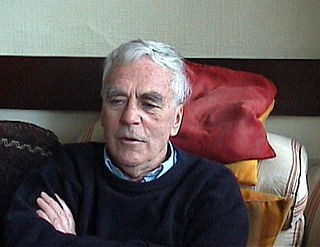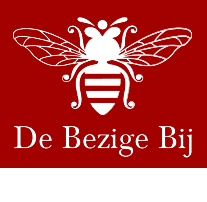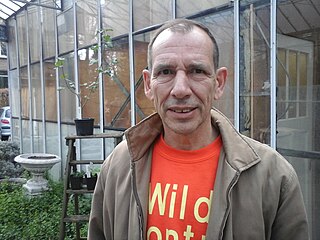
Arnon Yasha Yves Grunberg is a Dutch writer of novels, essays, and columns, as well as a journalist. He published some of his work under the heteronym Marek van der Jagt. He lives in New York. His work has been translated into 30 languages. In 2022 he received the PC Hooftprijs, a Dutch literary lifetime achievement award. His most acclaimed and successful novels are Blue Mondays and Tirza. The New York Times called the latter ‘grimly comic and unflinching (…) while not always enjoyable, it is never less than enthralling’. Frankfurter Allgemeine Zeitung described him as ‘the Dutch Philip Roth’.
F. Springer was the pseudonym of Carel Jan Schneider, a Dutch foreign service diplomat and writer.

Adrianus Franciscus Theodorus van der Heijden is a Dutch writer.
The Stripschapprijs is a Dutch prize awarded to comic creators for their entire body of work. It is awarded annually by the Stripschap, the Dutch Society of comics fans, since 1974. The prize is non-pecuniary, but is considered the most important award for comics in the country.

The P.C. Hooft Award, inaugurated in 1948, is a Dutch-language literary lifetime-achievement award named after 17th-century Dutch poet and playwright Pieter Corneliszoon Hooft. The award is made annually.

Willem Pieter Jacobus Brakman was a Dutch writer who made his literary debut with the novel Een winterreis in 1961. Brakman received the P. C. Hooft Award in 1980. He was born on 13 June 1922 in The Hague, Netherlands, and died on 8 May 2008 in the same country.
The Ferdinand Bordewijk Prize is a literary award, presented annually by the Jan Campert Foundation to the author of the best Dutch prose book. The prize was established in 1948 as the Vijverberg Prize, before being named after the Dutch author Ferdinand Bordewijk in 1979. As of 2024 the prize includes a cash prize of €6000.

Johannes Jacobus Voskuil was a Dutch novelist known best for his epic novel Het Bureau. In 1997 he won the Ferdinand Bordewijk Prijs for his novels Meneer Beerta and Vuile handen, and in 1998 the Libris Prize for Het bureau 3: Plankton.

De Bezige Bij is one of the most important literary publishing companies in the Netherlands.

Annejet van der Zijl is a well-known and widely read writer in the Netherlands. So far, she has written seven non-fiction books and one fiction book, most of which have become bestsellers. Her work has been awarded the Gouden Ganzenveer and the Amsterdam Prize for the Arts.

Hendrik Johannes Adrianus "Henk" Hofland was a Dutch journalist, commentator, essayist, and columnist. H.J.A. Hofland, as he is also commonly known, is often referred to as the éminence grise of Dutch journalism. In 1999 he was named Dutch "Journalist of the century" in a nationwide poll among his peers. He once described himself as belonging to the "anarcho-liberal community", though his political orientation is that of the secular center of society.

Clous van Mechelen is a Dutch musician, arranger, and actor. Van Mechelen scored a minor hit in 1969 with his band The Butlers, and became widely known through the radio and television shows written and directed by Wim T. Schippers, in which he played the character Jan Vos and wrote songs for the various characters.
Terug tot Ina Damman is a novel by Dutch author Simon Vestdijk. First published in 1934, it is one of Vestdijk's most popular novels. It is the third installment in the Anton Wachter cycle, a series of eight novels whose protagonist is Anton Wachter, the author's alter ego. His entire existence as an artist, Vestdijk later wrote Theun de Vries, originates in his "Ina Damman experience".
Daniël (Daan) van Golden was a Dutch artist, who has been active as a painter, photographer, collagist, installation artist, wall painter and graphic artist. He is known for his meticulous paintings of motives and details of everyday life and every day images.
Teun van de Keuken is a Dutch producer of television and radio programs who established a reputation investigating fair trade and production practices in the food industry; he founded the chocolate company Tony's Chocolonely. He debuted in 2017 as a novelist.

Interpay Nederland B.V. was the Dutch payment processor and payment product provider from 1994 to 2006. Interpay owned PIN, Chipknip, Acceptgiro and Incasso. In 2005, they spun off Currence and in 2006 they merged with Transaktionsinstitut für Zahlungsverkehrsdienstleistungen AG to form Equens.

Bernardus Stefanus Henricus (Ben) Zegers is a Dutch visual artist, active as a sculptor and installation artist, and teacher and coordinator at the Gerrit Rietveld Academy.

Ove Lucas is a Dutch curator and director of the Center for Visual Arts Rotterdam.
Singel Uitgeverijen is a Dutch publishing group, headquartered in Amsterdam. Its subsidiaries are Nijgh & Van Ditmar, Querido Verlag, De Arbeiderspers, Athenaeum, Polak & Van Gennep, De Geus, and Volt. Books are also published directly by Singel Uitgeverijen.
Deniz Kuypers is a Dutch-American writer. Born in Hengelo in the Netherlands to a Turkish father and a Dutch mother, he studied English literature at the University of Amsterdam and moved to the United States at age 20. He has published three novels, in Dutch. His 2021 partly autobiographical novel De atlas van overal was shortlisted for the 2022 Libris Prize. He lives in San Francisco.












